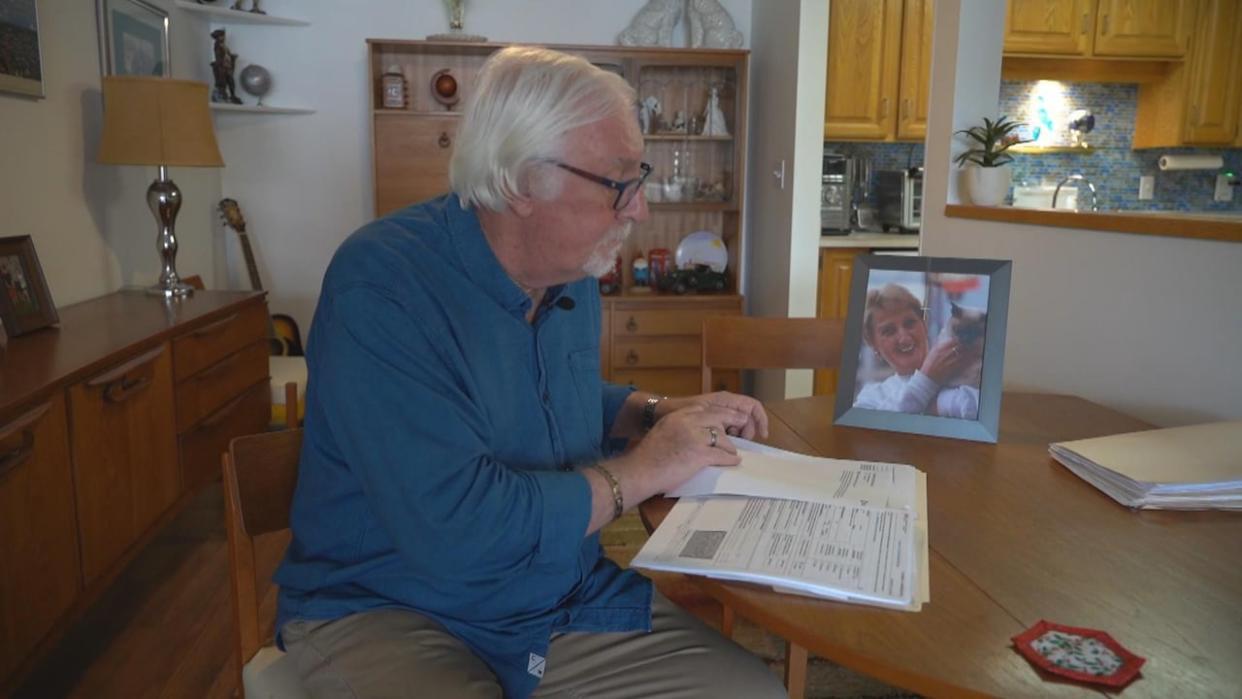Advocates call for tax breaks for single seniors as cost of living rises

Some B.C. seniors who used to rely on a spouse or partner to afford the basics and now live alone say they cannot keep up with the rising cost of living.
"I don't regard myself as poor," said Malcolm Roberts. "When you become a single senior and you lose all of those couples benefits, that does impact you a lot."
Roberts, 76, has been living in the same Kelowna condo he moved into with his wife, Eleanor, around 20 years ago. She died in 2021, after being diagnosed with multiple sclerosis.
"Suddenly I lose all of those [benefits] because we could share. There was income splitting, I could share her deductions and suddenly all that was gone," he said.
With a fixed taxable income of around $36,000 a year, Roberts says he's paying more now because he's in a different tax bracket.
That's on top of the expenses he used to share with his wife.
"I would love to be able to go out every now and again for a meal, but you know meals are getting to be quite expensive these days," he said.
Advocates want financial pressure eased
Advocates want to the federal government to ease some of the financial pressure on older Canadians living on a single income.
"Single people, for example, may need to spend more money on ... personal support workers, because they don't have a spouse at home to help them with basic things," said Elizabeth Brown, director of of the national advocacy group Single Seniors for Tax Fairness (SSTF).
Brown said the group presented recommendations to MPs and finance committee members in a pre-budget submission, which included five tax breaks for single seniors.
The recommendations include new non-refundable tax credits and increasing pensions for single seniors.
SSTF was disappointed to see its recommendations were not in this year's federal budget.
"I don't think we're in a world where you can say, well, if you're married, this is what you spend your money on. And if you're single, you spend your money on something else," Brown said.
In a statement to CBC News, a spokesperson for the federal Finance Ministry said since 2015, it has lowered senior poverty by increasing old age security and guaranteed income supplement benefits, among other things.
This year, the statement continued, it said the federal government will be changing the Canada Pension Plan to provide a top-up to the death benefit, a one-time payment to the estate or family of the deceased.
"We know that losing your life partner or spouse is devastating for a senior, as well as an immense financial burden after a lifetime of hard work," the statement said.
B.C.'s newly appointed seniors advocate, Dan Levitt, has been travelling throughout the province to hear seniors' concerns, and he says affordability is their biggest challenge.
"You throw in transportation, especially those who are living rurally, to get to even just to regular services that they enjoy or to health care. That's a big challenge for seniors and it's only more of a hardship if they're living alone and already lonely," Levitt said.
With his family spread throughout B.C., Roberts wonders how much he can spend to enjoy life on his own.
"I do think, do I want to go out and spend X dollars or should I be keeping those for something else?" Roberts said.

